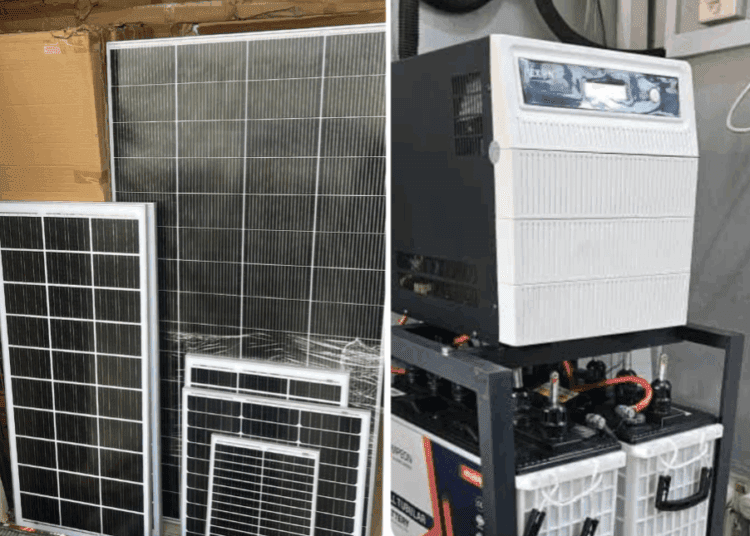With the rising demand for alternative power solutions, especially in homes and offices across Nigeria, the use of inverters has become increasingly popular. However, safety experts have warned that improper installation and poor maintenance of these devices could pose serious risks to lives and property.
According to energy technicians, inverters are safe when properly installed, but negligence, poor ventilation, and the use of substandard equipment often turn them into potential danger zones. Below are key safety precautions every household and office should observe:
Ensure Proper Ventilation
Experts advise that inverters and batteries should always be placed in well-ventilated areas. Heat generated during charging and discharging must escape freely to prevent overheating. Users are cautioned against keeping inverters inside tight cupboards, under staircases, or in enclosed rooms without airflow, as poor ventilation can shorten battery life and increase fire risk.
Keep Away from Flammable Items
Petrol, kerosene, curtains, papers, clothes, and other combustible materials should not be stored near inverter units. In the event of faulty wiring or battery sparks, such items can quickly ignite. A separate, dedicated space with a tiled or concrete floor is strongly recommended.
Insist on Proper Installation
Technicians stress that installation should always be handled by qualified professionals. Wrong wiring, undersized cables, or poor earthing are common causes of inverter fires. Users are also urged to insist on original, certified accessories, as cheap and fake components often fail under load.
Avoid Overloading the System
Every inverter has a load capacity, and connecting appliances beyond this limit is a major safety risk. Heavy appliances such as refrigerators, air conditioners, irons, and electric cookers should only be powered by high-capacity inverters. For standard units, users are encouraged to prioritize essential items such as fans, lights, and basic electronics.
Regular Battery Checks
Battery maintenance is a crucial part of inverter safety. Experts recommend regular inspection for leaks, corrosion, bulging, or unusual odours. Swollen or leaking batteries should be replaced immediately. In addition, terminals should be kept clean and greased to prevent corrosion, while distilled water should be topped up for wet-cell batteries.
Use the Right Safety Gear
Circuit breakers, fuses, and surge protectors are essential in protecting both inverters and household appliances from power surges. Users are also advised to keep a CO₂ fire extinguisher nearby, as it is the safest option for electrical fires. Proper earthing or grounding is equally necessary to prevent electric shocks.
Routine Maintenance Matters
Dust, loose connections, and weak terminals are common but preventable causes of inverter failure. Energy experts recommend regular cleaning and inspection of inverter units, with a professional check-up at least every six months. Unusual noises, odours, or error signals should never be ignored.
Final Note
While inverters remain a safe and reliable source of backup power, experts insist that only proper installation, regular maintenance, and adherence to safety rules can guarantee their long-term benefits. Carelessness, poor ventilation, or the use of fake equipment could turn what should be a lifesaving device into a hazard.













